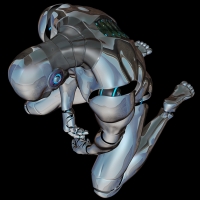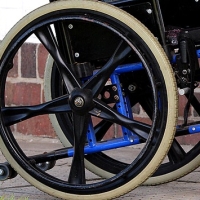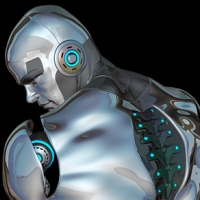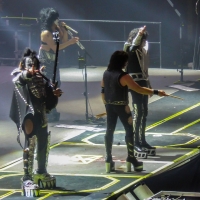- About Us
- Columns
- Letters
- Cartoons
- The Udder Limits
- Archives
- Ezy Reading Archive
- 2024 Cud Archives
- 2023 Cud Archives
- 2022 Cud Archives
- 2021 Cud Archives
- 2020 Cud Archives
- 2015-2019
- 2010-2014
- 2004-2009
 |
Cud Flashes In The Pan |
This month’s theme:
Corridor & Cereals Part 2 - Science Fiction
Regular readers know that I occasionally do a column with stories that share titles with the songs of various recording artists. Here is the second installment in a seven-month theme honoring one of my favorite musical duos: Hall & Oates. As of this writing, Daryl Hall and John Oates have recorded 18 studio albums, but they have 28 compilation “best of” albums. It’s nice when labels shamelessly try to make as much money as they can, no matter how silly it looks.
These stories are all science fiction, albeit of different flavors.
“I Don’t Wanna Lose You”
Science fiction
By David M. Fitzpatrick
All eight of the kids were in the playroom, and they were making a racket, even as small as they were.
“Quiet down in there!” Valerie barked into the microphone on her headset, which broadcast into the playroom, but it did no good. They were like animals.
She hurried through the grocery store with her cart, throwing in item after item. Her purse was over her shoulder, and the small red box was in the cart, slowly getting buried under groceries. In her earpiece, she could hear that Peter, the oldest, was torturing his sister by pulling her hair.
She keyed the mike. “So help me, Peter, if you don’t leave your sister alone, I’m going to turn you over my knee!”
That did the trick, at least for the moment. Valerie double-timed it around the store. A bag of potatoes on top of the red box. Fresh veggies piled around it. Boxes of cereal. It was certainly a better way to shop for groceries. When she had run the aisles with a gaggle of children running around, it was a painful hour of screaming at everyone to stop putting things in the cart, listening to whining for candy and crying about not getting this or that, and constantly losing them—like when Tommy had run off to a nearby playground, or when Deanna had almost been taken by a stranger. Or the time when the twins had hidden under a display table in the deli for an hour, with the store on lockdown, before anyone found them. She just couldn’t risk taking them into a store loose like that, because she couldn’t keep track of the band of hooligans. They wouldn’t listen to her, and they moved faster than she did. So she’d leave them in the playroom, but she had to be vigilant on the earpiece; they thought they could get away with anything because they were in the playroom without her, so she had to turn into a radio-broadcasting drill sergeant.
The cart was piled high; the red box was buried under a mound of groceries. Time to check out. She made a beeline for the exit, where the autoscanners would register every item in the cart and debit her account. Just like that, she was out of the store and heading for her car. It was so much easier this way. She ended up hoarse barking at them, but she’d have done that anyway, and probably to a worse extent, if she’d had to scream at them across the entire store.
In her earpiece, she heard Tommy and Ginger screaming at each other. He was thirteen and she was fourteen, and she liked to make fun of his acne. The younger kids were crying, wailing, screaming, and otherwise carrying on. Valerie had to get home on the double before things got out of control.
“Enough of this!” she hollered into the mike. “I’m loading up and I’ll be home in ten minutes. Can’t you little brats mind for that long?”
Valerie heaved everything into the shopping bin—groceries and her red box—into the back seat. She’d have needed a small bus to load all those kids in to go shopping—or leave them home alone, with the run of the house, which she’d never dare to do! Once everything was loaded, she discarded the cart and got into the car as the six-year-old twins were getting into a very loud fight.
“KNOCK IT OFF, JESSE AND JAMIE!” she screamed, but it didn’t work. Whatever; they weren’t hurt, and she’d be home soon enough.
She raced homeward, listening to the escalating insanity in the playroom as she went. Nobody was hurt, so she didn’t holler at them anymore. She just got home as fast as she could. In the driveway, she hauled out the red box first and set it on the ground. She opened it up and looked inside. There was the playroom, with her children just inches high.
“Why do we have to get shrunk down like this?” one of them whined.
“Because I can’t take you little monsters to the store at your normal size, and I can’t trust you home alone!” she hollered at the tiny kids. “And I don’t wanna lose you, which I always would in the store!”
She hit the release button, and the sides of the red box folded down. There was a flash of light, and all eight kids were restored to their normal sizes. They made a lot of racket running into the house, leaving her to unload the groceries alone. Valerie sighed.
“I just might shrink them down and leave them like that,” she fumed.
“Do What You Want, Be What You Are”
Science fiction
By David M. Fitzpatrick
“Sure, I’ll tell you my thoughts, since you’ve asked to hear them. I was born a heterosexual male. Once I came of age, I changed that often. Today, for instance, I chose to be a homosexual female. I like women, and sometimes I like being one. Sometimes I like being one and being with one. I love the different perspectives and experiences that I can have—they really make me appreciate other people more, since I can sort of try on others’ shoes, so to speak.
“That’s the beauty of the gender-changing technology. It can change genitals, secondary sexual characteristics, you name it. Back in the twenty-first century, some people thought they could reprogram homosexuals to make them hetero, but that was faulty psychological conditioning—and against their wills.
“Today, we can just plain change the structure of the brain. But no one makes us do it. It’s a choice. So today I choose to be a woman, and I’ve chosen to reduce my body mass. I want to be a tiny little firecracker with wide hips and big breasts. But I’m already planning next month, when I’ll get changed again. My friend Robert and I are going on a camping trip, and he wants to be a hetero woman, and I’ll be a hetero man. We’ve done match-ups before in various ways, and we’re both really good in that combo.
“But for now, a week with my best friend Mariah. She’s usually the tiny one, but this time she’s going to be a good six feet tall and athletic. She’s been nervous about trying a lesbian encounter, so she’s having that changed in her brain—because she trusts me, and who better to do that with the first time than a best friend?
“It’s bizarre to think that, way back when, this was an issue. I’m not sure why everyone cared who was having sex with whom, or who identified as which gender, but it was just silly. If you can believe it, there was this big sticking point between two opposing points of view. One side believed someone was born a certain way; the other believed someone chose to be a certain way. The fact is, we really ARE born a certain way. No one could choose to be straight or gay; no one could choose to identify as a gender other than their physical presentation.
“The big question, of course: Even if someone in the twenty-first century, before today’s technology, were actually able to CHOOSE to be a certain way... why the hell would it have mattered? Why would anyone care? What people do with their sex lives or their bodies or their thoughts or wishes or dreams… it just doesn’t affect anyone else.
“But those dangerous ideas aren’t completely dead. Every now and then there is someone out there who holds the same intolerant beliefs as those of centuries ago. They’re far, far fewer, but they’re demanding people who feel that what someone else chooses to do or be somehow affects them. Like their forebears, they seem bent on controlling the choices of others.
“Today, I’m choosing to be a homosexual woman; next time, I’ll be a heterosexual male. I’ve been a bisexual of either gender, a mix of genders, gender neuter, pansexual, and everything else you might imagine. And why on Earth should anyone care? Why would anyone want to deny us the same rights as others? And, centuries ago, why did they do this, day in and day out, embracing hatred, intolerance, and weak-egoed selfishness as a cultural norm? I’m just glad we’ve mostly left that barbaric behavior behind us.
“So… does that answer your question? I know that this seems strange to you, since you’ve never chosen to convert. Anything you’d like to ask?”
* * *
The stranger who had met her when she’d exited the conversion center seemed troubled. “I appreciate your willingness to explain your perspective,” he said to her. “I know it’s weird, having someone you don’t know approach you on the street, asking such personal questions.”
She smiled sweetly. “There are plenty of people who choose to remain how they were born—male, female, straight, gay, or anything in between. I get a lot of questions.”
“Not from someone like me.”
Her smile faded, and she regarded him with a quizzical look on her face. “I don’t understand.”
He took a deep breath. “I’m like those people from centuries ago, ma’am. I’ve tried not to be. I’ve tried to open my mind and think differently, but… I’m repulsed by you and anyone like you who chooses to undergo such changes.”
She backed off a step, visibly worried. “Oh.”
He held up his hands. “Please, don’t be afraid. I’ve heard that occasionally there are people like me who can’t accept it for whatever reason. Maybe WE’RE born that way. Whatever, I know that most like me are extremely vocal in their hatred and intolerance. But I’m different.”
She folded her arms defensively, under her breasts. “How so?”
He gestured at the building. “Because I’m just as repulsed for my hatred and intolerance. I know it isn’t right. I’ve tried to fight it, but I can’t. And I want to change.”
She breathed a sigh of relief. “That’s extraordinary. And you’ve come to the right place.”
She offered her elbow to him; he wrapped his hands around her arm, as a woman of a bygone era might have done with her man, and she led him into the conversion center.
“Every Time You Go Away”
(…you take a piece of me with you)
Android SF
By David M. Fitzpatrick
The mindless robot was returning, as it had for weeks. The white bot was only about a foot tall, but Jake-2497—or what was left of him—was helpless against it. It was as maddening as those damn humans who had destroyed the world.
Jake watched, annoyed and frustrated, as the six-legged bot meandered down the ruined city street toward him. The damned little thing had been coming back every few days and dismantling him, one piece at a time. Since Jake’s main power cell had failed, only his head was functioning on its batteries, so he was at the bot’s mercy.
The banged-up little bot had started with his hands and feet, then forearms and calves. The upper arms and legs had proven more of a challenge for the mechanical scavenger, and it had worked hard to drag the pieces away, around wrecked cars and garbage that littered the roadway. Jake had yelled at the bot, but the bot had ignored him in its mindless work. Now, with his head sideways in the street of the ruined city, he could only watch as it happened.
After his limbs were gone, the service bot began disassembling his torso. The thing would meticulously undo wiring harnesses between various vertebrae and remove casing parts, framework, and other components. His chest was nearly empty; the thing had hauled off almost everything except his titanium clavicle and a few attached pieces—notably, his dead power core. Now, the bot approached, walking on six legs down the dusty, abandoned street, and Jake’s head could only watch.
When the bot arrived, Jake said, “No more, you little junker. There’s nothing else worth anything! The clavicle only matters to this frame. And the power core is dead. Leave me be!”
But the bot wordlessly extended tools as it arrived, and it tackled his neck. Jake could only listen as the power tools disconnected his neck from the clavicle and upper ribs, and his head rolled helplessly into a new position. There was that, anyway. He’d been down since his power core had died, long after the war between androids and humans. When the service bot had first approached, he’d thought there might be a rescue—but no, it just started taking him apart for scrap.
“You worthless junker!” he cried out as the bot locked on to his clavicle, upper ribs, and power core with a clamp. “You’re worse than a human, tearing us apart like this!”
It was probably programmed to scavenge for parts to bring back to a recycling facility. The stupid thing, with its non-sentient, primitive AI, didn’t know any better; it couldn’t tell that he was alive and well, sort of. The bot headed off, dragging the large piece. The little devil moved slowly and deliberately, and Jake could only watch for an hour as it disappeared far away, beyond the rusting vehicles and random debris.
At least it was something to think about while he died. The backup battery in his head would last another month before his android brain would finally, mercifully die, but that was nothing compared to the two years he’d lain in the street wishing for someone to recharge his power core. He’d wished, for every second of those two years, that he could drain the power faster, and just get it over with...
He lay in the street as the sun set, and then he watched the slow-motion dance of the stars cartwheeling overhead, until dawn finally broke again over the horizon. Rainstorms came and went, and so did two more nights, before he saw the distant movement far down the cluttered street on a gray and dreary morning. The service bot was returning.
“Here it is,” he said. “The end.”
He did have a bit of excitement about this last bit, because for the first time in two years his head would go somewhere else. So he watched with a mix of relief and revulsion as the bot approached on its six legs. He watched it extend its gripper and felt it grab the base of his spinal column. His view jerked roughly about as the bot began moving, and so began nearly thirty hours of hell on the way to the scrap heap. His head bounced and jostled, so his view was rarely the same along the way. The bot dragged him down the street, out of town, down a long road, and then across a plain.
Finally, it reached its destination, but it wasn’t a scrap yard. It was an old human house, rather in the middle of nowhere—like everything in the world, without any humans to occupy it. He felt the bot detach, and his head rolled to a stop looking right at the house. He heard footsteps behind him.
Then his view shifted as his head flew up into the air, grabbed by two strong hands, and he felt it being fitted into a neck—and, just like that, he came to full-powered life. He looked down, astonished, to find his head atop his own body. In his chest, his power core, completely recharged, pulsed with life.
Jake looked down at the service bot in shock. “What… what is this?”
The house door opened, and he spun about to see a human woman in a wheelchair.
“Sorry that I couldn’t come get you myself,” she said.
“A human!” he cried.
“The only one around, it seems. My name is Barbara. And you’re the only android. I’ve sent my little helper out to get you. I have a core charger in the house. You’re just like new.”
“Why would you do this? Why would a human help an android, after the war?”
“It was not my war!” Barbara cried. “And there might not be anyone left from either side. I hoped for some company.”
She was beautiful, but she looked tired. There was something about her that reminded Jake of an android he’d once been in love with—the same brown-blond hair, the same button nose, the same heart-shaped face…
That had been before the war. When there were still androids and humans left in the world.
He felt himself soften a bit. “Why not just have the bot take my power core here to recharge, and then return it?”
Barbara looked at him with pleading eyes. “You might not have come back here.”
He approached her with caution. “You seek only companionship, human?”
“Only that. Although, to be honest, you could certainly be helpful in other ways,” she said, gesturing to her useless legs. “But that’s up to you. I’d just be happy for the company.”
It had been a long time since he’d felt positive about a human. “You could use a powered exoskeleton to enable you to walk.”
“No one left who knows how to build one.”
He smiled. “That is not quite true.”
“I’m in Pieces”
Android SF
By David M. Fitzpatrick
Jake sat next to Barbara’s bed, where her still, unbreathing body lay.
It had been forty-two years since they’d met—since she’d saved him, one piece at a time, from oblivion. And now she’d gone there. He wanted to go as well.
He’d looked for other androids the first five years they were together. He’d go out on days-long excursions into nearby cities, but he’d never found one. There were various bots with non-sentient artificial intelligences, but that was it. The last few humans, near the end of the war, had developed a massive electromagnetic pulse that had destroyed the synthetic brains of all androids. There hadn’t been human survivors beyond that—at least, not enough to repopulate the planet.
Jake had been lucky that day. At least, he’d felt lucky at the time. He’d been hiding from human kill squads, and he’d found an underground bunker. It was the sort of thing that humans had built long ago, when worried about nuclear war. He’d hid, able to live for years without recharging his power core, and when he finally ventured out… nothing left.
And no charging stations. When his power core finally gave out, he’d collapsed in a deserted city street and lain there for two years before Barbara’s six-legged scavenger bot had saved him. He’d never envisioned living four decades with the only human left in the world, but it had been true love.
Jake watched her chest, trying to will her to begin breathing again. He knew better. She was in her eighties, and her body had finally given out.
That was it. The world was over. It was just him. He could keep recharging his power core forever, but why bother?
He stood up and looked down at her peaceful face one last time. Then he turned and left the bedroom, and the house, forever.
Jake walked for weeks, further than he’d gone since Barbara had saved him. He had no purpose; he just hoped against hope that he’d find another android or human. Anyone. But it was ghost city after ghost city. Still he walked.
It was on the fifty-third day that his power core finally died. It was deja vu, reminding him of another street where he’d collapsed so long ago. He was on an old highway, now overgrown with weeds, between cities. Empty plains flanked both sides.
He laid there for seven weeks, through rain and sun and more rain and more sun. He was waiting patiently for the battery in his brain to die, so that he could finally die. There was no reason to keep going.
And then he heard the machine. He was lying so that he faced in the direction that he’d been going, and he saw it in the distance: a big, armored tank, like the humans had used to crush androids by the thousands during the war, and it was rolling toward him.
There were humans left. And, of all things, they were going to destroy the last android on the planet. He chuckled to himself at the insanity of the situation.
But they’d never get him. His battery was nearly dead. Before they could destroy him, he’d destroy himself. He ran every program that he could think of, just to use even a little more battery power. The tank rolled closer.
He wondered what death would be like. There was something that androids called imprinting—a quantum event where the power core replicated memories. The core was more than just a power core; something about being a reflection of the person that an android was, and that an android never truly died so long as his power core survived. Androids with transplanted cores reported flashes of memories that weren’t there. Indeed, Jake had had such experiences, and could never explain them. So even when he died, perhaps one day he would live on, so to speak, in another.
But, of course, there were no others.
The tank was bearing down on him, and he willed his battery weaker. It was just about dead. Human bastards.
The tank driver swerved at the last possible moment, but the big track rolled over his body and tore it to pieces. Without his power core, he had no sensation of feeling, but his viewed spun madly as the big tank went over him, and he saw his arms, legs, ribs, and internal pieces flying everywhere. And as his head bounced and rolled slowly to a stop at the side of the road, he heard the tank screeching to a metallic halt.
His dead power core, a flat black instead of a glowing red, rolled lazily to a stop in front of his face. He was looking into his very soul, if the myths were right. Beyond, he saw all the pieces of his body, ripped from him and torn into smaller bits. There was no repairing it, and no stopping his brain from dying…
He laughed to himself as the light went out forever. His last thought was of Barbara.
* * *
The tank door opened and three of them got out.
“Is he alive?” one of the androids asked.
“I’m afraid we’ve destroyed him,” said another.
“The head is intact. Battery?”
“It looks like we damaged it. Battery is dead, but… brain is partially crushed. Nothing much to save.”
The leader bent over and picked up the black orb. He held it up, looking at it.
“Maybe there’s something of this android left in here,” he mused. “Probably not, but it looks like a perfectly good power core. We could use this as we manufacture more androids.”
They returned to the tank and continued searching for any other androids survivors.
“Kiss on My List”
Time travel
By David M. Fitzpatrick
“Time jump ready,” Gordyn said.
“Got it,” Mykil said. “Power’s at maximum.”
“Are you ready?”
“As I’ll ever be.”
“All right, we’ll be there for about ten hours before the time machine snaps us back. Be sure to keep that armband on, or you’ll be stuck a whole bunch of centuries before you were ever born.”
“Gotcha!”
“Initiating…”
Gordyn activated the machine, and the lights flickered. Then there was the telltale rainbow explosion, and Mykil and Gordyn were four centuries back in time. They were in an open field in the late afternoon, with trees nearby. In the distance, tall buildings were visible.
“We’re a few miles outside the city,” Gordyn reported. “We have plenty of time.”
They hurried off at a jog and soon passed into suburbs. The concrete increased as they went, and the buildings grew taller, and soon they were in the early evening in a bustling twentieth-century city. There were people everywhere, but the duo was not there to study anything.
They finally made it to the venue and presented their tickets—pitifully easy to clone; it was 1978, so there weren’t even high-tech security measures. Soon they found their seats, and before too long the band took the stage.
They began with “Shout It Out Loud” in their wild makeup and crazy costumes, and Mykil and Gordyn had the time of their lives. When the experience of smoke and spat chicken blood and breathed fire and a wild array of kick-ass rock songs was finally over, they found a secluded spot to await being snapped back. Mykil whipped out his handheld.
“KISS checked off!” he announced. “Still on my list: the Beatles in the 1960s… Meat Loaf in the 1970s… Aerosmith in the 1980s…”
“One thing at a time,” Gordyn said. “These trips are expensive.”
There was a flash of light, and the time machine snapped them back to the present.
David M. Fitzpatrick is a fiction writer in Maine, USA. His many short stories have appeared in print magazines and anthologies around the world. He writes for a newspaper, writes fiction, edits anthologies, and teaches creative writing. Visit him at www.fitz42.net/writer to learn more.
